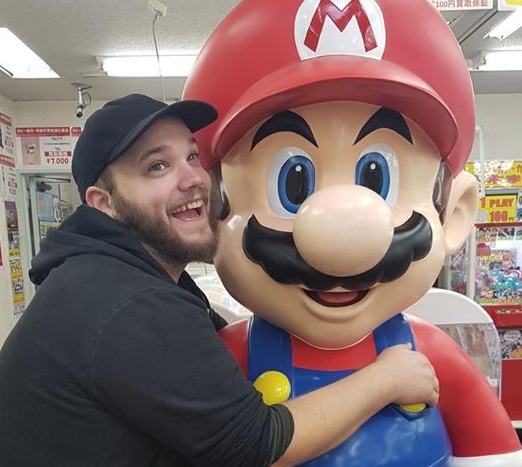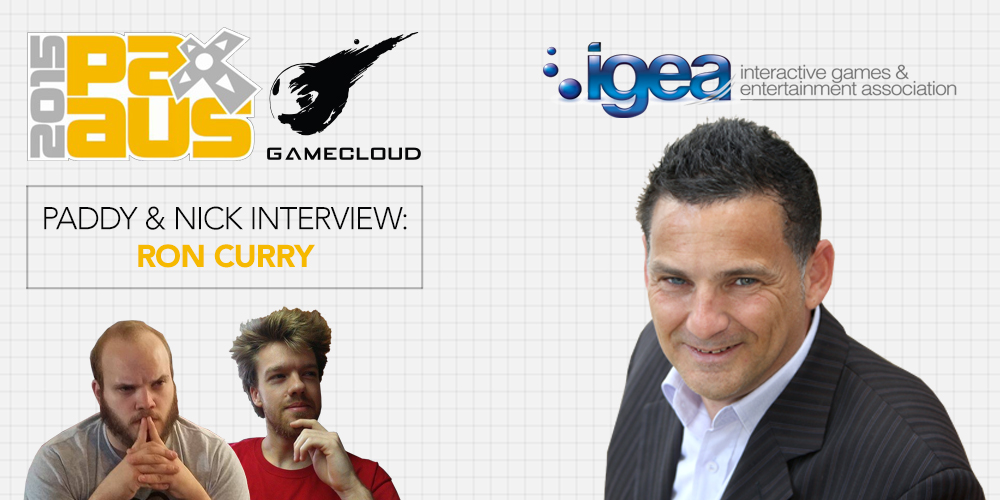
During PAX, Nick and Paddy attended a panel called, “Boss Level: Meet the Brains in Charge of the Aussie Games Industry,” which was all about exactly that. An informal Q&A of sorts, members of the audience were invited up to ask questions of Game Developers Association of Australia CEO Tony Lee, IGEA CEO Ron Curry, WA Greens Senator Scott Ludlam, and Good Game’s Bajo and Hex. What are the challenges that face anyone trying to enter into a career in games development in Australia? What does the Government do to support those developers, and the industry in general? What direction is gaming going in general? How does Paddy manage to stay so handsome? These are all questions that were asked during the panel, among others, and our reporters had a chance to catch up with Ron Curry about his personal take on it all.
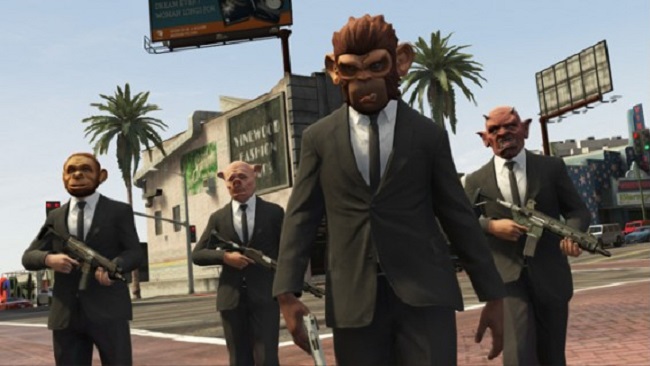
Settle in, this is a long one.
Paddy: Today’s panel was all about the Bosses of the gaming industry in Australia – who runs things, how it’s regulated and that kind of thing. What’s your view of the industry at the moment, what the development scene is like, and who runs it?
It runs itself, and there’re a couple of people who represent it; Tony [Reed] is the CEO of the Game Developers Association of Australia and largely that’s his job, he represents game developers in the country. Quite specifically, that’s what he does. My role is very similar to Tony’s, but I look after issues that affect the whole industry. So, does that involve development? Yep, it does, but it also involves legislative issues, PR issues, issues management issues. So, our jobs are very much aligned, and we do communicate constantly, every week we’re talking about what we’re doing, ensuring our messaging is consistent and that we’re not tripping over each other. If he says he’s going to visit Scott Ludlam, then I ask what message can you deliver from me and vice versa.
Nick: It was mentioned in the panel that gaming is going through something of a renaissance, and things are starting to kick up a bit in Australia, too. What do you personally want to see from the industry?
I want to see an environment that supports the industry in five years time. We’ll find out, we know what we’re doing now and there’s some great stuff happening, there was a comment made during the panel that “three times as many graduates are coming out now for the amount that will be employed?” We need to fix that; we need to solve that somehow, we’ve got talent leaving the country, and we need to fix that. We don’t have enough jobs for the people who are graduating but maybe we need to think outside the box.
We talked today about business, health, education, military – a whole slew of stuff that people are studying for and coming out of university with no job in it, well where can we fit them creatively? It may be that they can go into areas, not of games for fun, but serious games. We need to make sure that the landscape is right for the industry to accept those kinds of students, but also for the students to be open to those ideas and say “You know what, there’s a whole out there that I could be working in.”
Paddy: One thing that was touched on during the panel was communication, specifically the use of particular terms when trying to communicate an idea to someone. Even something as simple as trying to explain playing a game to someone from an older generation who never has and sees it as being “kids stuff.” Can you expand on what you mean by “Serious Games,” and how they relate to terms like “Game” and “Play”?
A serious game is essentially is a game whose primary focus is not enjoyment or entertainment. Now, clearly that should be part of the process but that’s not what it’s designed to do, the mechanics are being used for something else. Let’s say I’m a young guy, and I’m in a spinal unit, I have to do this to practice (begins lifting and moving a cup) some kind of arm movement. How long am I going to do that for? Probably until the physio walks away, right? But if you put Fruit Ninja on, and there’s nothing else to do, how long are you going to play that for?
Paddy: Probably forever.
Okay, so then if I’m playing it against the guy in the bed next to me and I’m trying to beat his score, all of a sudden I’m competing with others in order to get better – it becomes a much better experience. Now, am I primarily doing it for engagement and entertainment? In this case I probably am but it’s designed not for that, it’s designed for a better outcome like helping you strengthen your arm. We’ve looked at some work that’s being done around MS using products like Dance Dance Revolution; it’s about lifting your legs, getting that movement, having that balance – is it primarily designed for entertainment? No, it’s primarily designed to teach you balance through entertainment and engagement.
It’s about flipping things on their head a little bit, and that’s what I mean by “Serious Games.” If we look at psychometric testing, how crappy is it, you know? And how intimidating can it be? But if someone sits you down in front of a video game and you’re just playing through a game and making decisions and choices and stuff like that, which collects a whole stack of data points, a lot more than the tick and flick would do, it’s delivering a serious outcome. It may seem like you’re doing it for fun, but that’s not why it was created.
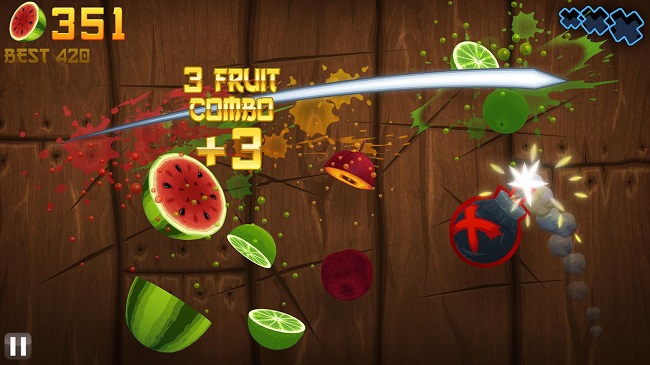
“We’ve looked at some work that’s being done around MS using products like Dance Dance Revolution… is it primarily designed for entertainment? No, it’s primarily designed to teach you balance through entertainment and engagement.”
Paddy: Expanding on the point of communication and the terms we use, it can be something of a barrier to older generations or just anyone not familiar with the culture and the medium. Do you think we need to reconsider how we talk about games, or do you think it’s just a problem of people needing to experience the medium for themselves before fully understanding?
I think when you talk to some people about games there’s an instant thought when you say videogames, they’ll maybe think about the stuff that’s happening out here at PAX. It’ll be something that pops into their head, it might be Call of Duty, it might be GTA, it’ll be some image that they’ve formed from watching the news; they’re not sure what it is, but they know it’s not good. We often sit with groups of people, and we’ll ask them “Who here plays board games? Who here does crosswords? Who plays Scrabble?” And you might get someone who says that they play Scrabble, and you’ll ask “Do you play it on your phone?” and they’ll say “Yeah, I play it on my phone against people I know,” and then you say to them “So you’re an online gamer.” People think about that and often say, “Oh, well I didn’t think of it like that, it’s not so different.”
It’s not Call of Duty; it might be Candy Crush, but it’s not until you reframe for them what a game is that they finally understand. I think to a lot of people, the term “gamer” is maybe a pejorative term and the research we’ve done around that, a number of people have said, “I know what a gamer is, and I’m not that… but I play games.” These are the same people that don’t want to be called a “booker,” or a “tv-er, or whatever other medium. They don’t want to define themselves by the medium that they use because we often don’t. We don’t go around to people and say, “Hey, guess what? I’m a book reader,” or, “I’m a film watcher.” Well, we have foodies… But a lot of people don’t want to class themselves as being “outside of the norm.”
So, again we can use the reframing of “you’re a player,” instead. If you look at the research we did this year I don’t think we used the word gamer in our whole report; it was all about the player and who plays.
Nick: Our viability for sustainability: Do you think that there are any serious challenges that are impeding Australia right now for achieving a sustainable outcome for games, and where would you look for ideas on making that change happen?
If you look at a macro picture first: I’m a major publisher, and I want to create a game, and I look around, and I know that, globally, I own about six or seven studios. This is how they work; they’ll have those six or seven studios, and they’ll say, “Right, we’re going to create this game – each of you need to pitch for it,” because they’re all business units. So they all pitch for it and the publisher says “Fabulous, we’ve got two great pitches for it – Vancouver and Melbourne. Melbourne’s 16% dearer? Thanks for coming. Vancouver – you’ve got the gig.” It’s business, and I get that it’s this creative thing, and we all want to have this idea of “making art and not needing to make money.”
Paddy: Except, like… We do.
Except we do. Because we’ve got to eat, we don’t want to live on the floor the whole time, and there’s only so many two-minute noodles you can eat before you want to eat something else. So, we need an environment that supports a global leveling of the competition. We also need to create an environment that supports young start-ups, to me it’s an ecosystem – you can’t see but, sort of doing this with my hands–
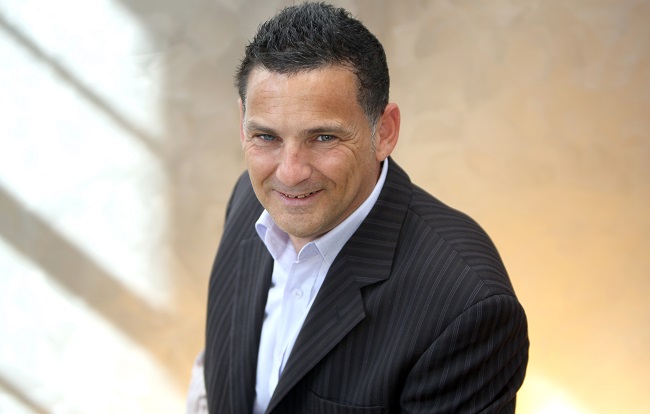
Imagine this man creating something akin to a venn diagram with his hands.
You have developers coming out of college or university and doing their own stuff, but then they go to work for a mid or large tier company. There’s a whole bunch of learning that happens in that environment, they come out of there, and then they populate, they seed their own companies. Then others come to work for them and go through the same process; all that takes time, and it takes money, it takes investment, and that’s also where I can see the Government implementing something similar to the Interactive Games Fund. That’s not a handout, either, it’s people asking for a hand with the first or second title, and then their success gets rolled back into the fund for someone else to be successful. Like Tony [Reed] said during the panel, we’re lucky to be in an environment in this country where developers.. everyone’s happy to support everybody else.
Paddy: So, we have a whole bunch of kids that we’re currently teaching new skills to that there won’t be any jobs for by the time they reach a working age. Do you think that we’ll be ready in twelve to fifteen years when kids who are entering school now are leaving university then?
Things have to change; interestingly, if you talk about kids studying coding and then in another ten years they’ll be entering university, the lecturers at those universities don’t know coding. There’s a whole new language and expectation that the tertiary educators need to learn because you’ll have a new generation of young people, young adults, that want to speak in that language. I’m kind of not answering your question at all; I’m highlighting a whole other problem that needs to be wrestled with. We talk about how to get high schools and primary schools ready for this new technology, well we now need to push that up and start looking at higher education.
Paddy: On the point of value for money, and this was brought up during the panel as well, Australia gets ripped off a lot for game prices. Especially now that we’re in the digital age, where digital distribution removes a lot of the traditional costs of distributing copies of a game. Do you think that’s a big barrier for some people who see gaming as something of an expensive hobby instead of a culture?
Well, it’s way cheaper. It’s ninety-nine cents on the app store. (laughing). It comes back to again what we were saying before about gamers or specifically gamers who’re willing to spend sixty, seventy, eighty bucks on a game. And I’m not diminishing that conversation about gouging, either, but let’s not forget that gaming starts at 0 cents to enter the market on any level to a hundred bucks or more. There’s a wide gamut of people playing at all those price points; there are people who are jumping in at next to nothing and then spending sixty bucks to stay in the game.
It’s kind of two separate discussions there. All this stuff at the bottom, like certain free to play’s, ad supported, episodic stuff it will drag the price of other stuff down with it. They’re other models that consumers, gamers and players can engage with. And we’re transitioning, we’re moving from this whole publisher-slash-retailer model to this direct connection between the developer and the consumer. All that can take awhile, especially at the big end of town, the model and that kind of co-dependence takes awhile to change.
Nick: During the panel it was talked about the international standard that we make in Australia, especially in Melbourne we have some incredible talent, but if you want to get anywhere in the industry you have to go overseas. What are your thoughts about that?
No, I don’t think so. Well, if you want to get funding you need to go overseas but not to be successful. Don’t tell the guys from Hipster Whale you need to go overseas to be successful, because they’re really successful. It also really depends on what you want to do within the industry; if your version of success is to be the project director or lead designer on Assassin’s Creed then sure, you might need to move. If we think success is directly tied to funding, then yeah you might need to move to Vancouver, or San Francisco, something like that.
Nick: Well I meant more regarding the recognition when pitching to an international audience. It seems to me that whenever an Australian game comes out, we don’t usually hear about it unless it becomes hugely popular on a global scale.
Yeah, I think we’re bad at it, you know? Culturally, I think we’re bad at that. A couple of weeks ago, four out of the top ten iTunes games were made in Melbourne, and the fifth was made in Queensland. Look at us all amazed in here! Because no one calls it out! First, I think it’s because there’s no one responsible for calling it out, secondly we’re all like “Yeah, great, we’re just getting on with business.” When you start doing that sort of thing, promoting it and calling it out, it’s really important for the industry. It develops more pride in the industry; it invigorates everybody, it makes them think “You know what? We’re punching so far above our weight.” If four or five titles can be a global success, it speaks volumes for the industry here.
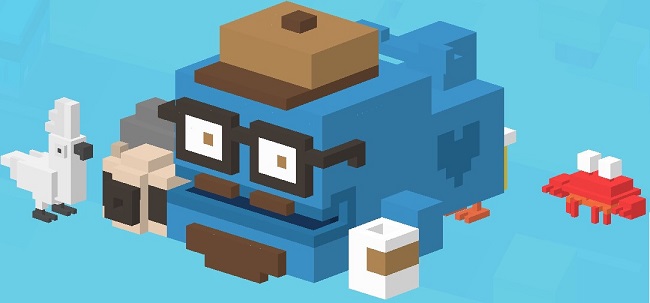
“Don’t tell the guys from Hipster Whale you need to go overseas to be successful, because they’re really successful.”
Nick: So you think it’s just a cultural thing here that’s holding us back?
It’s cultural; it’s also structural in the sense of “Who’s here looking at it?” We’re all too busy, you know, developers can often see it as “Great, my title’s on the top ten list for this week, but I’m busy doing something else.” We’re not really joining the dots when we should be; it’s not until you get to the end of the week and sit back to look at everything when you notice, “Oh, look at that – look how well we did last week.”
Paddy: You were saying before that if a developer did want to go down a more grandiose path, such as being the lead designer or something similar for a high profile title, they’d have to go overseas. Do you think there’ll come a time when that won’t be the case? Will we reach a point where premium titles like Assassin’s Creed are being developed by Australian studios and will receive the recognition that goes along with that?
Yeah, I’d really like to think so. I’d like there to be an environment where, if Ubisoft said, “We want to make Assassin’s Creed twelve–”
Paddy: They did that about.. Six years ago.
“–or twenty-six, or whatever,” or if SEGA wanted to re-enter Australia, we should have the sort of environment that should allow them to do it. Conversely, when EA entered Australia, they bought a studio, and it was because of the talent, not because it was in Australia. It wasn’t an investment in the franchise; it was an investment in the talent and the people. That’s what we want, for there to be opportunities for smaller studios to work their way up to being world class– Well, we’re already world class, but world-leading studios and developers.
Paddy: On that point, something that was said by Hex during the panel was that smaller studios are often bought up by larger studios that are based overseas, but the studio remains here as an Australian branch. Then when it comes time to cut costs and so on, it’s that Australian branch that’s usually the first to go because it’s seen as being the “cheapest” option. Would you say that Australian developers are undervalued, not in the sense of being underpaid but that there’s no confidence that they work they’ll produce will be quality?
I think the developers and the businesses in this country are a lot more mature than they were. As far as what Hex was saying about the smaller studios that would sell out purely to be part of a bigger entity and the later get cut because blah blah etc., I’m not sure we’re so susceptible to that now. We’ve got some really smart development studios now that don’t need to be bought to be successful. I think we’ve got some smart publishers now that have stopped viewing things as, “Let’s just buy up whatever we like – uh oh, it’s costing us too much, let’s chop it and move on.” I think everyone’s matured, the developers have matured about not jumping into bed too quickly, the publishers have passed that point of buying up too quickly. We went through a GFC, our dollar went up which made life hellishly expensive to do business in this country, and it was difficult to get funding from other sources as well. It was the perfect storm.
Paddy: With that idea of the industry struggling a little to succeed economically in Australia, what are your thoughts on the axing of the Interactive Games Fund?
I’m a pragmatist about Government; the Government will give, and it will take away, and it’s all about playing the game. My concern, and I was really disappointed about this, was that Brandis came in as Arts Minister and just cut it. There was no conversation with the industry, no analysis of how the program was going, no consideration given to the fact that it was largely self-funding, or even asked if it was working. It was a minimal amount of money, as well, in the grand scheme of things it was bugger all, and that’s what I found really disappointing the most. There was just a complete disregard for due process and consideration before the decision was made – it smacked of arrogance.
Nick: We’re seeing a lot more games coming out as the industry matures – stuff with diverse and hard-hitting topics, like depression and so on. We’re also seeing different kinds of games like VR, real life experiences, and that kind of thing. Regarding new people who are coming and having completely different ideas about what gaming is, where do you see it leading the industry over the next few years and what do you think it means for Australia?
I was asked this question a few years ago at a gaming event on a panel about where the industry is going to be in five years. The other panelists were saying that we’re going to have great headsets, new technology, holograms, and the sort–
Paddy: WE’RE GOING TO HAVE HOLOGRAMS!?
Ssshhh! I wasn’t meant to say that! (laughing.) I said on that panel that what will happen is that games will just filter out to everyone. Let’s look at books – when books were first around, they were limited to a small group of people, only certain people were allowed to read and have the books. Parents were a bit freaked out about their kids having books, they didn’t understand it and thought it was going to make everyone evil. Television had the same thing. Now, we look at moving images – and by that I mean movies and TV and stuff. We’ll use it at home for entertainment, we’ll go to work and watch an induction video, we’ll go to the Doctor’s and he’ll play us an example video of how our operation’s going to go.
There’s this particular medium that delivers a message to us wherever we go, and it’s the moving image. Well, that’s where I see games going. When you need to experience something, or someone needs to explain it, or there’s a story to be told, the story can be told via a game. It may not be PAX; it might be when you go the vet, and they’ll say, “This is what we have to do to help your pet.” You’ll twist it and look at it; there’ll be an avatar that looks like your dog, and that’s how I’ll get that narrative, delivered via games.

“When you need to experience something, or someone needs to explain it, or there’s a story to be told, the story can be told via a game.”
Nick: So you see it diversifying into practical areas like Health and Education?
Yeah, and that’s exciting. That’s exciting for people who do a whole bunch of other stuff outside of games that can still be applied to games.
Paddy: I’ve personally always felt like video games are the superior medium for telling a story, do you think that video games will replace other mediums we’ve traditionally relied on for information? Like, instead of a magazine in the waiting room of that Vet there’ll be a little game you can play that gives you your news before you play the “Here’s how we’ll operate on your dog” game?
Yeah, I think it’ll likely be a lot more subtle than that.
Paddy: Yeah, probably not virtually stabbing Rover with a scalpel.
Probably not. It’ll be using what game developers inherently know to educate, to provide a narrative or a metaphor for what you’re doing. Gaming and playing are how we learn everything; the first few years of your life are all about playing and games. That’s how we’ll do it, it won’t be a static screen that’ll sit there and tells us to do something, it’ll be an environment that invites us into it to engage. I was at the New Zealand Game Developers Association and the head there said, “The difference between the two mediums is that with televisions we lean back, with games we lean forward.” We want to put our heads in, and that’s where I can see the value of the medium right across the industry – right across all industries.
Paddy: Something that was said by yourself during the panel is that “The wheels of government turn really slowly,” Scott Ludlam also said that the current Government system doesn’t really cope well with fast changing industries. How do you think the Government could, or should change to better accomodate games?
Nick: Can… Can we use games?
Paddy: Yeah! Can games help the Government better understand games?
Sure! There are governments that have jobbed out problems to the games industry: “How do we deal with queues in Hospitals?” They give that to the gaming industry; they can figure that out because we can understand the process, and we’ve seen a whole bunch of stuff that gets put up on the internet and solved by the collective mind. The Government is in a different world when you speak to politicians who’ve spent the whole year isolated from the real world they do miss a lot of the nuance of what gaming is. Our job is just to keep going in there and talking to them.
We’re also at a position now where a lot of the advisors are young, they’re only about thirty to forty years old, and they’re the average age of a gamer, and they are the average gamer, and they get it. We’re slowly getting the message across to those guys; unfortunately, they’re not the ministers at the moment, and the MP’s that they represent are the up-and-comers, but you know what? That’s just what you have to do sometimes, you have to accept that we’re not going to win this battle with Brandis, we’re not going to win it with a whole number of other ministers because they’re just not going to get it. So, you look at who’s next; you start seeing who are the next up and comers; is it Steve Ciobo from Libs? Is it Jason Clare from Labor? And we start talking, that’s where the conversations start happening.
Nick: Obviously you value the engagement of games – do you see that as the main thing that will drive the growth of the industry, and will really in-depth games like Metal Gear Solid V that will require seventy hours of your life and a great understanding of the in-game mechanics become less important?
As you widen the use of games, it may not be as important as some things but in the grand scheme of things they’ll still be important because they’re used for entertainment. Going back to the point before that we never really got back to one of the powerful parts of gaming and the narrative of it is that you can take the time to explore those deeper themes. Do we want to talk about different forms of sexuality, different forms of illness, of a whole number of things? It allows you to have that much deeper level of engagement and exploration of those issues. If you look at the film industry and their evolution, that’s not where they started either, they weren’t making moves about a bunch of issues that we shouldn’t be talking about. And, generally, the people who are talking about them now, it’s still the indies – it’s Michael Moore, not Spielberg, that tackles tough issues.
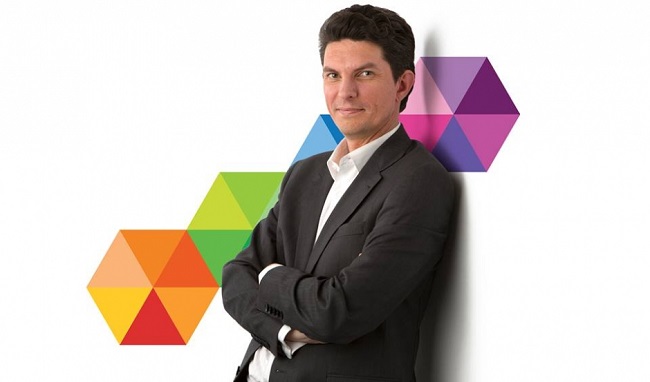
“That’s just what you have to do sometimes, you have to accept that we’re not going to win this battle with Brandis… So, you look at who’s next; you start seeing who are the next up and comers.”
Paddy: What’s your favorite game?
… This is tough… Look, I’m really looking forward to Fallout 4. I’m also really looking forward to Battlefront. Strangely– Well, not that strangely, but Tomb Raider. I mean, I launched the first Tomb Raider in Australia – yeah, I’m that old – so I’m really looking forward to that as well. Because there’s such an array of things that I like, I find it really hard to point to a single game and say that it’s my favorite. Without sounding like a tool, I pretty much get every game – I get to play everything, so I never stay on anything long enough. There’s always something else, and I’m like “Oh! Something shiny!” I also just don’t have much time anymore, and I have three sons and a nephew who play in my house, and a daughter who plays videogames – how the hell am I supposed to get on a screen!?

